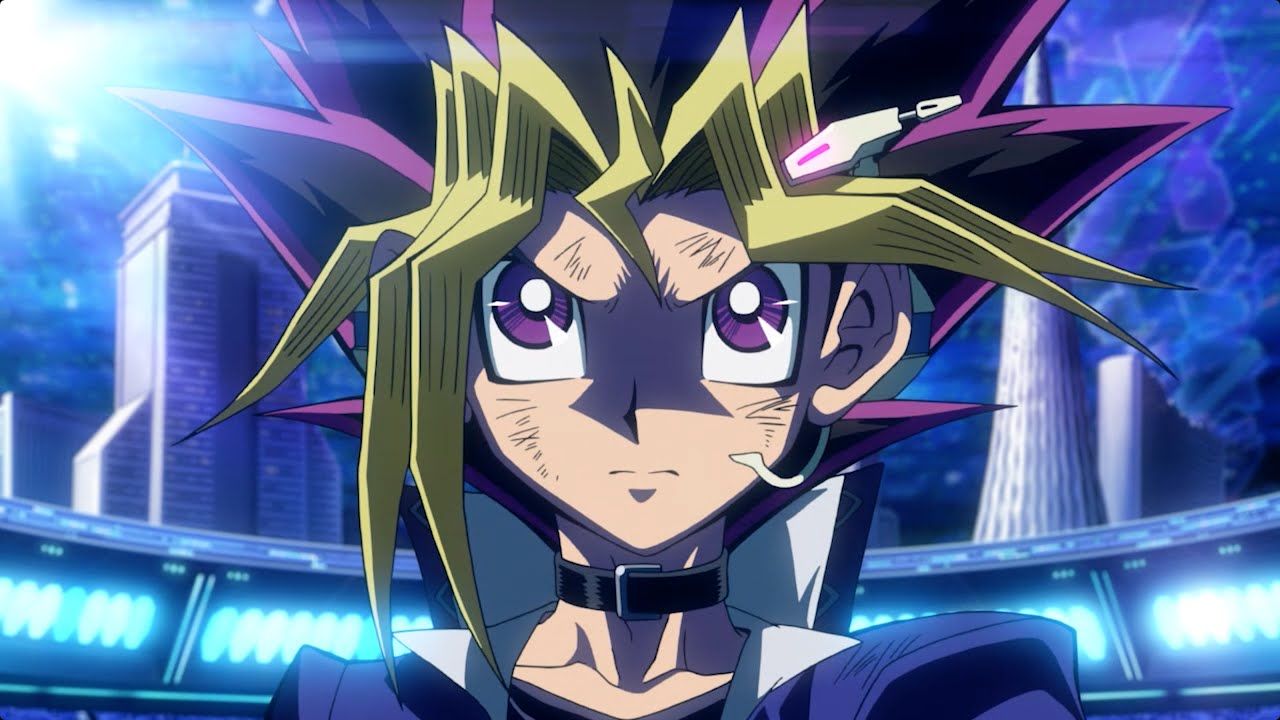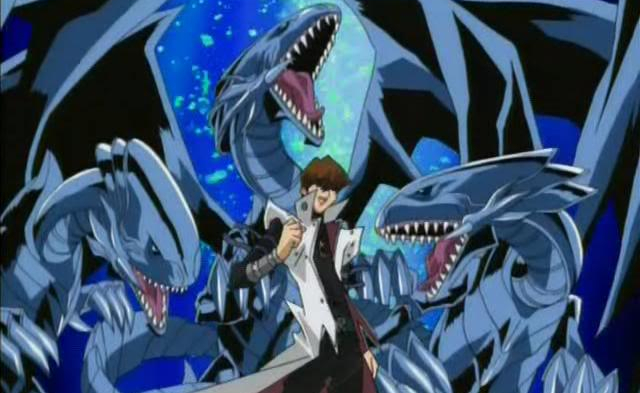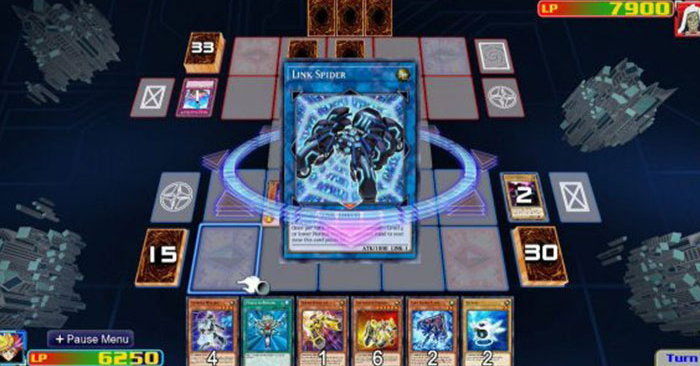Create a free profile to get unlimited access to exclusive videos, sweepstakes, and more!
Revisiting Yu-Gi-Oh after a decade away

Back in the late '90s and early 2000s, I was a real sucker for over-the-top anime about how believing in your friends was more important than raw ability. From Pokémon, where the anime routinely ignored its own rules about type advantage to tell nail-biting stories, to BeyBlade, where somehow believing in the spirit living in your spinning top allowed it to spin for longer periods of time, I just really loved shows where belief and trust could overcome any issue.
Perhaps no show of the era captured this feeling better than Yu-Gi-Oh, an anime about a children’s trading card game with end-of-the-world fates at stake.
For anyone who never watched Yu-Gi-Oh, the show focused around the story of a young boy named Yugi, who had a magical necklace puzzle that contained the soul of an ancient Egyptian pharaoh who was suspiciously good at card games. Installments all revolved around life-or-death card games with excessive stakes, while the overarching plot told a story about magic being real and being intricately tied in with the history of summoning monsters and activating traps.
Yu-Gi-Oh was, like so many shows before it, designed to be an extremely effective medium through which to sell physical products. Where the plot of Transformers was constantly introducing new characters to sell more toy robots, every new character in Yu-Gi-Oh allowed the show's creators to sell more physical trading cards to kids. It was one huge advert, showcasing how the card game worked so kids would buy it, but behind that cynical shell it was a really sweet show about believing in yourself and your abilities even when things looked bad.
The main way this presented in the show was something called “the heart of the cards," essentially a superpower our protagonists used to always draw exactly the card they needed to save the day, despite the luck involved in drawing cards in a TCG. If the protagonists just trusted themselves, their friends, and the cards they had poured time and effort into curating, everything was bound to work out okay.
Where most ’90s anime was very aspirational, focused on emulating things you could never do yourself, like pretending to go Super Saiyan or transform into a magical girl, Yu-Gi-Oh’s action was all very replicable at its core. As a kid, I remember spending around $20 on a pair of decks themed after the show's main two characters, and just sitting at home playing the card game against myself, seeing which of the two would win this time. I could create new content from the show, using the things I recognized, without too much financial input, which got me really invested in the show it was based on.
My road with Yu-Gi-Oh hasn’t always been a smooth one. In my teens, I got a little too addicted to purchasing randomized trading card game booster packs, to a bit of a financially detrimental extent, and I ended up not playing the game or watching the show for the best part of a decade. However, I have recently started to return to one of my childhood loves, and I’m finding a lot of love for the show and card game, despite the notable issues I can see as an adult.
So, in the years since I stopped playing Yu-Gi-Oh, a lot about the game has changed. There’s a whole host of new summoning types that were introduced seemingly largely to make old cards obsolete and keep people spending; the show has moved on from the characters I knew and cared about and taken on a more child-oriented simplistic tone; and in many ways the core of what I knew is long in the past.
But recent events like the Yu-Gi-Oh world championships really helped me to remember what I love about the franchise, by leaning hard into nostalgia. From a DJ set based around the original show’s theme tune to a card game where the show’s voice actors dramatically narrated a physical card game as it happened, I still have a lot of love for this two-decades-old advert for trading cards.
A couple of weeks ago, a new Yu-Gi-Oh video game was released on the Nintendo Switch, titled Yu-Gi-Oh: Legacy of the Duelist: Link Evolution. While I’ve promised myself I won’t get back into buying physical cards due to my own addiction issues, this video game has been a really nice way to get in on some nostalgia for the game that I used to love.
There are no microtransactions, all of the cards can be unlocked in-game, and it basically allowed me to play through all the important card games from the anime, from the perspective of the person who won, and then try to win as the person who canonically lost in the show. By allowing me to fill the shoes of these big dramatic characters I grew up with, using all their best cards and acting out the most important wins from the show, this new Switch game has propelled me right back to memories of being a kid with a couple of structure decks playing alone in my room. Honestly, that’s my favorite way to play the game. I’m just enjoying the nostalgia of going back and re-enacting the cartoon that made up many years of my childhood.
As an adult, I can see this show and card game existed to siphon away my pocket money, but it doesn’t change the fact that I go back to old episodes to watch someone give up TCG prize money to pay for a friend’s sister’s eye operation, and still well up just a little. I still have fond memories of watching Yugi refuse to win a duel because their opponent emotionally blackmailed them, and the eventual honest rematch felt all the more powerful for the dishonest first clash that led to it. I know that The Heart of the Cards was an excuse for card games to have impossibly high tension with no downtime, but I still find myself holding my breath in tension willing the correct card to get drawn. Yu-Gi-Oh at its core may have been about selling trading cards, but playing this new Switch game has set of all my nostalgia bits in my brain and brought me back to the days of being an excited child — without the risk of financial ruin.
The views and opinions expressed in this article are the author's, and do not necessarily reflect those of SYFY WIRE, SYFY, or NBC Universal.




























